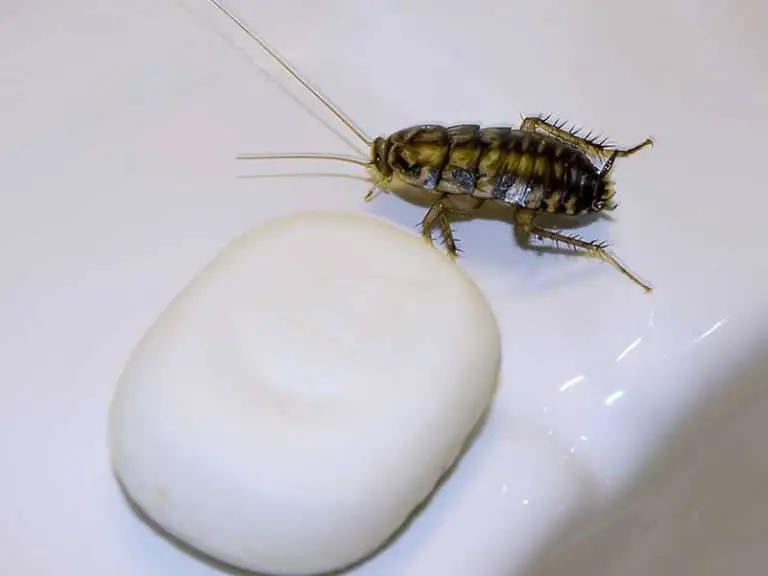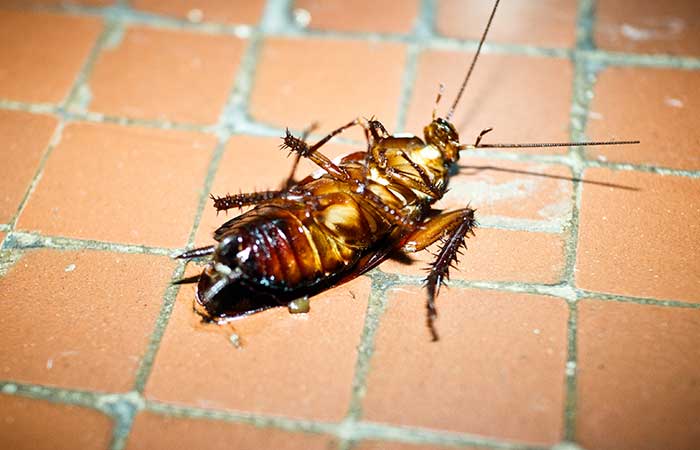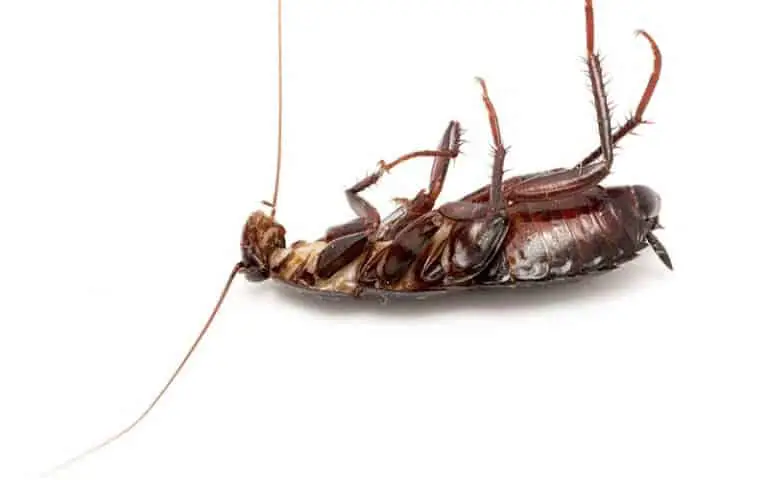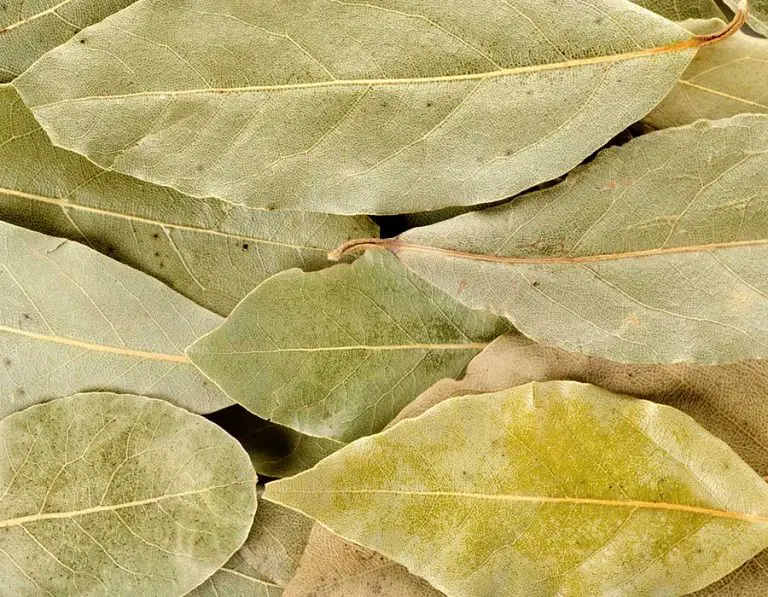Does Coffee Have Cockroaches in It?
Coffee is one of the most beloved hot drinks in the world. It boosts energy and it helps people relax. The process of making coffee is subject to processed food standards. This means it might contain traces of inorganic or organic compounds such as roaches.
Traces of cockroaches can be found in certain types of coffee as a result of the manufacturing process. Roches are attracted to coffee cherries as they dry in the sun. A small amount of roach traces is approved by the FDA as it’s not a health hazard.
All coffee sold in the US is subject to FDA regulation. This means coffee needs to be pre-approved as safe for consumption by the US Food and Drug Administration. Only coffee with a very small and safe amount of roach traces is approved for consumption in the US by the FDA.
Roaches in coffee are sometimes inevitable, which is also the case with chocolate. However, you will not find entire roaches in your coffee. Only small parts of roaches or traces of cockroaches are found in coffee. These traces don’t affect the safety or the taste of coffee as it’s still fit for consumption.
Coffee cannot be made without traces of roaches or other insects in a way that would still be fit for human consumption. Heavy and toxic pesticide use is the only way to grow coffee without cockroaches. This is more detrimental to health compared to roaches.
Why cockroaches make it into coffee
Coffee has a long harvesting and roasting process. Its journey from farm to table takes months and in this time, it meets bugs and insects of various species.
Not all bugs in coffee are the same. The types of bugs and bug traces found in coffee are dependent on the region the coffee comes from.
There are a few regions in the world where the best coffee is harvested from. Central America and South America are just a few regions known for their excellent coffee quality.

These places are also known for large cockroach populations that live both on farms and in urban areas.
The Central American Giant cockroach is one of the most popular roaches that may infest coffee beans in Central America.
Brazil is one of the South American countries with very good coffee quality. The Brazilian cockroach is one of the most common roaches in the country that may or may not be found in coffee.
Africa is one of the continents with very good coffee as well. Within the continent, countries such as Ethiopia are known for having a good range of specialty coffee. The German cockroach may be found in Ethiopia coffee. It may also be found in coffee from other African countries as the German cockroach is widespread throughout countries of North Africa.
Arabic coffee is also very popular due to its rich profile. This coffee comes from Central Asia. The area isn’t roach-free. The Rusty Red or the Turkestan cockroach lives in the area and its traces might be found in Arabic coffee around the world.
Fresh coffee beans attract flies as they dry
Cockroaches rarely try to chew through dry roasted coffee. Instead, they are commonly found on coffee cherries or fresh coffee.
This is a production stage coffee consumers don’t see. Soon after harvesting coffee cherries, they are laid out to dry on wood or stone slabs. They remain there for days. Cockroaches indulge in freshly-picked coffee cherries.
Cockroaches can make it into coffee storage facilities
Cockroaches may also be present in storage facilities. They might be drawn to the coffee beans themselves or they might be seeking shelter from the rain.
Whatever the cause, roaches are often found indoors where coffee beans are packed for shipping.
Roaches can travel with coffee during transportation
Transportation is the main method of accidentally introducing a cockroach species to a new area of the world. Roaches might make it to a country with coffee shipments.
Many roaches have been accidentally introduced to North America and other parts of the world. Trading is one of the industries that carried invasive or non-invasive bugs and insects such as roaches, spiders, and wasps across the world.
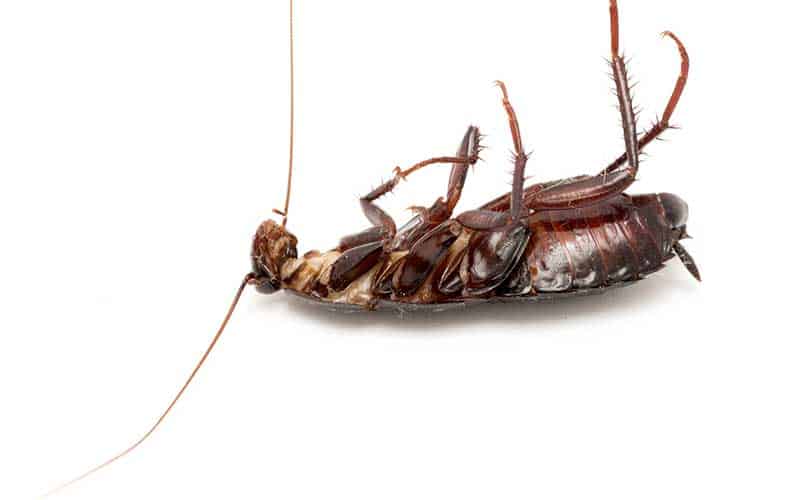
Which type of coffee contains cockroaches?
Not all types of coffee are the same and not all coffee has the same amount of roach traces within it. It’s difficult to estimate just how many cockroaches are found in a pound of coffee.
However, a larger spectrum of bugs and rodent traces are allowed in small amounts of food. It’s believed cockroach traces are found in 4 to 6% of given food we consume today, this includes coffee.
However, the percentage can be lower in reality with certain types of coffee.
Pre-ground coffee is known to contain cockroaches
Pre-ground coffee is not processed, but it’s roasted and packaged before making its way to supermarkets and coffee shops. It can contain a small number of roaches. These small amounts are of no health concern if approved by FDA.
Whole bean coffee rarely has cockroaches in it
Whole bean coffee is the least likely type of coffee to contain roaches. Coffee beans are selected before being packed and sent out to consumers. Consumers also take out coffee beans from the packaging for roasting or grinding. This means there are small risks of cockroach traces making the entire journey to the final cup of coffee.
Ground coffee may contain cockroaches
Ground coffee is known for a longer manufacturing and packaging process. It can carry cockroaches that make their way to coffee at different stages of the production process to a higher extent compared to coffee beans mostly shipped directly to consumers.
How to avoid roaches in your coffee?
While nobody can truly avoid having roach traces in the coffee, there are ways to limit this. The least processing coffee goes through before it reaches the consumer the lesser the chances of having roach traces in it are.
Grind beans at home
The best method of shortening the processes coffee goes through is by selling it as raw as possible to the customer. Whole bean coffee is the ideal choice when it comes to a limited number of bug traces.
This means you have to grind coffee at home. However, you can handpick each coffee bean yourself which means you limit almost all traces of roaches.
Buy from reputable sellers
Reputable sellers are sometimes recommended for the best coffee. Both large and small coffee producers have to adhere to FDA standards when it comes to quality. Up to 6% of coffee beans can be affected by insects and bugs according to the body’s guidelines. However, the true percentage can be lowered when buying from reputable sellers with stricter production standards.
Buy green coffee
Green coffee beans are among the most recommended when it comes to limiting roach traces. Even these types of beans can be affected by bugs, but they sit in warehouses for the least amount of time compared to roasted coffee, pre-ground, and ground coffee.
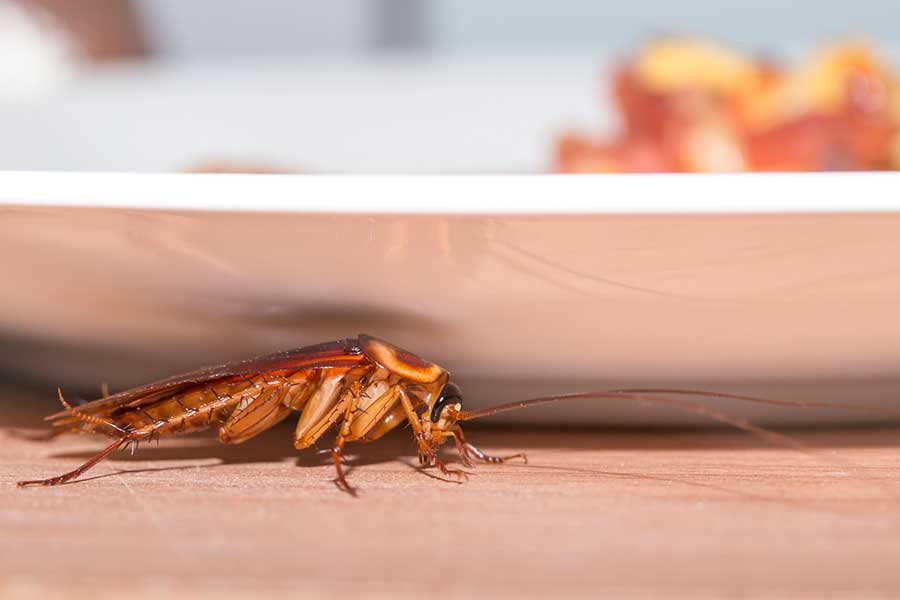
Why avoid coffee with high amounts of roach traces
Cockroaches have been associated with a high number of health concerns. They can be seen as bacteria carriers. Most importantly, cockroaches have been associated with a series of respiratory issues.
Possible asthma triggers
Cockroach traces can become airborne whenever ground in fine particles together with coffee. This can lead to airborne particles that can settle in the respiratory system. This can be seen as a trigger for asthma according to the American Lung Association.
Why coffee will never be free of cockroaches?
The production process is lengthy and expensive. Coffee crops are some of the most expensive in the world. Forests are being cleared to make room for these crops. Farmers do everything they can to increase production.
Pesticides are highly common in coffee crops
There are data to suggest coffee crops are the most exposed to pesticide use among all types of crops around the world. Coffee is expensive and pesticides are the chemical method of keeping pests away.
While pesticides can keep many pests away, they also get absorbed into the coffee itself. Pesticides have been linked to multiple types of cancer.
One of the ways to avoid coffee grown on crops with pesticides is by buying from areas where pesticides are too expensive or where there’s no large-scale machinery to spray it.
Buying purely organic coffee can also be one of the methods to avoid all types of pesticides. Even if organic coffee might be exposed to some roaches, they are still a lot less harmful than pesticides.
Summary
Coffee has been proven to contain small amounts of cockroaches. These amounts are not problematic as they are approved by the FDA as safe to consume. Furthermore, most coffee is roasted and ground so that roaches lose their traces in coffee.
While coffee that has almost no roach traces in it is possible, it’s generally dependent on pesticide use. This is not a healthy alternative and drinking cups of coffee from approved brands remains the way coffee is safely consumed.

